Early career work
This page
contains a collection of
related
thought fragments ↓
That can be connected ↑ ↓ These fragments came from THE MEMO

The society of organizations forces the individual to ask of himself or herself:
“Who am I?”
“What do I want to be?”
“What do I want to put into life
and what do I want to get out of it?” in context

#evidence-wall and timeline #ewt → larger ↓

We are … what we do — repeatedly (Groundhog Day)
#04 In navigating … ↑ ↓
“Your #thinking, choices, #decisions are determined by
what you’ve “SEEN” ↓
From knowledge to knowledgeS … continue

“#Decision making ↑ is a time machine here
that synchronizes into a single time — the present —
a great number of divergent time spans.” Druckerism
time spans larger view ↓
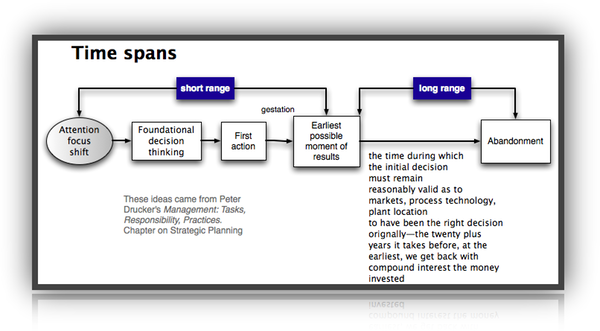
Evolution of sound transportation — in time and place ↓

#ntea
We can make decisions only in the present,
and yet we cannot make decisions
for the present alone;
the most expedient, most opportunistic decision—let alone
the decision not to decide at all—
may commit us for a long time,
if not permanently and irrevocably.” — Chapter 11, MRE by Druckerism
“Wisdom is about awareness ↑.
If you know the road ↑, life is easier.
TLN insights
If you can see the road ↑ ↓, life is easier.
If you can discover new roads ↑ ↓, life is richer.
If you know you have a choice of roads ↑ ↓,
life is richer.” continue
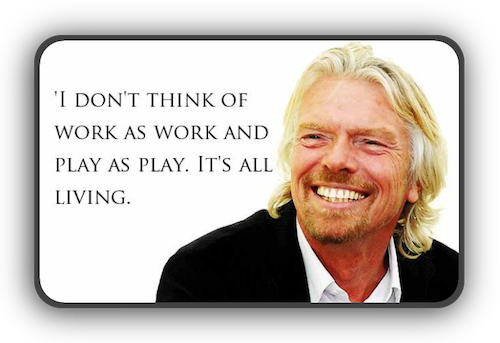
Richard Branson
“Making a living is no longer enough,” …
“Work also has to make a life.” #whtmal
Druckerism ::: TLN insights ::: Managing oneself (calendarize this? #ams)
Successful careers are not planned … continue

We are embedded
within a world
moving relentlessly
toward
unimagined futureS
The dramatic evidence of this non-linear assertion ↑
can be seen in the top museums
around the world
“We know only two things about the future ↑.
It cannot be known.
It will be different from what exists now and
from what we now expect” ↓ Druckerism
“For almost nothing (#fan)
in our educational systems
prepares people
for the #reality
in which they will live, work,
and become #effective” —
… and graduate school is much worse …
… “not even educated in management” … continue
Google search
Druckerism and intellectual capitalist #lms #education
How could an education system prepare us
for unknown and unpredictable future #realitieS?
Thinking … the most fundamental,
the most important aspect of life,
the basis for everything
is totally neglected …
School: no thinking subject —
Book store: no thinking category
Universities: no thinking faculty
and zero possibility thinking
What about critical thinking?
— #edb Edward de Bono
“We need judgement to find our way through life.
The danger is an excessive emphasis on rigid acceptances and rejections, and not enough attention to design.
Design is a matter of putting things together to achieve an objective and to serve our values.
Instead of searching for the standard solution we design a way forward.” — Edward de Bono
For an #individual, having a socially needed knowledge specialty is valuable — but #reality is not quite so simple
#thinkingcanvas ↓

Make Judgement Operational within time
More than anything else, the #individual has to take more responsibility for himself or herself, rather than depend on the company — explored further down the page
#careerTimeView ↓ → knowledge industries, work, worker
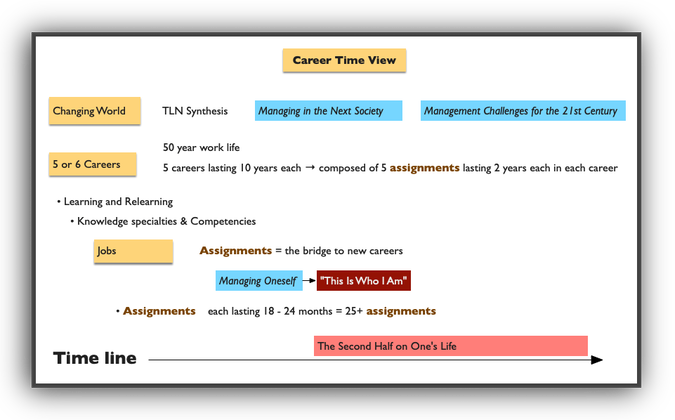
Allocating your life
larger career time view ↑ ::: If you can see the road … ::: The walking dead
Opportunities ::: The return on luck

It is time to give up thinking of jobs or career paths as we once did and think in terms of taking on assignments one after the other continue
Broad worldview ::: Danger of too much planning ::: Learning to learn ::: Seasonal changes #parallel
Know your strengths ::: The first #question to ask is what needs to be done ::: Every six months, ask yourself, what do I want to be remembered for? continue
You are the Twenty-first Century CEO of yourself
The spirit of performance

Other people
are seeking to “shape” your life
without asking your permission ↓
#gpdf No human being
has built a better brand
by managing just himself
than Peter Drucker has. continue
#Note the number of books about Drucker ↓
#evidence-wall ↓
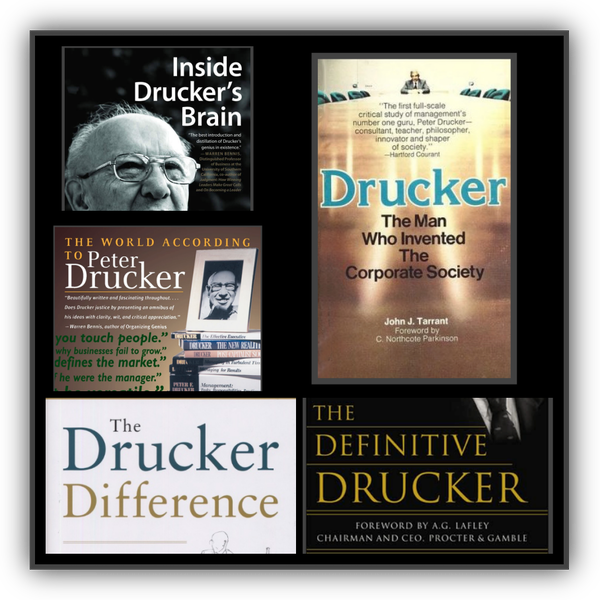
“I am not a ‘theoretician’;
through my consulting practice
I am in daily touch with the concrete opportunities and problems
of a fairly large number of institutions,
foremost among them businesses
but also hospitals, government agencies
and public-service institutions such as museums and universities.
And I am working with such institutions on several continents:
North America, including Canada and Mexico;
Latin America; Europe; Japan and South East Asia.
Still, a consultant is at one remove
from the day-today practice —
that is both his strength
and his weakness.
And so my viewpoint tends more to be that of an outsider.”
broad worldview ↑
Management, Revised Edition chapter summaries
Books by Peter Drucker
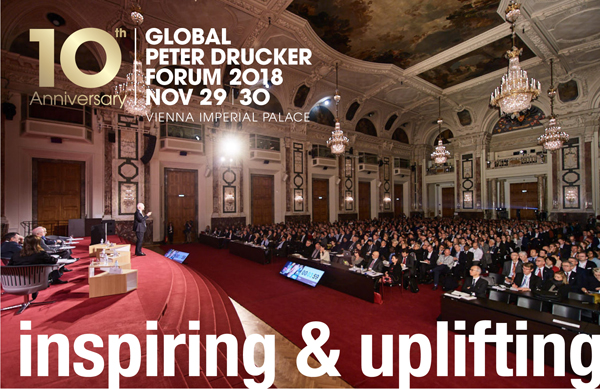
Beware of narrow worldviews ↑
THE ALTERNATIVE TO TYRANNY
It is very, very difficult to effectively grasp the implicationS of
what goes on behind closed doorS (#wgobcd) #ntea ↓
To what extent are these people ↑ ↓ looking after your interests?
e.g., The End of Loyalty et al.
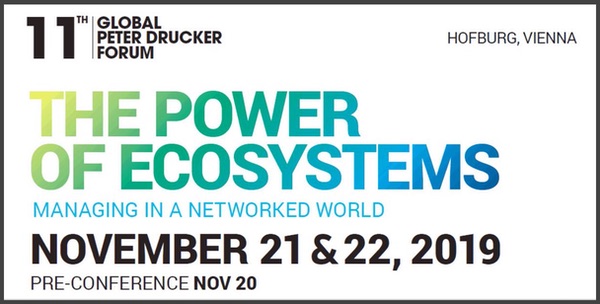
Management Worldviews ↑ ::: Post-capitalist executive ↑
Global Peter Drucker Forum ::: Charles Handy → Starting small fires
Hofburg ↑ ↓

larger view one ::: two ::: three ↑
#09 #sda ↑ “In less than 150 years, (circa 1988)
MANAGEMENT has transformed
the social and economic fabric
of the world’s
developed countries. …
How would it be possible to participate in this transformation process
if you’re not aware of it?
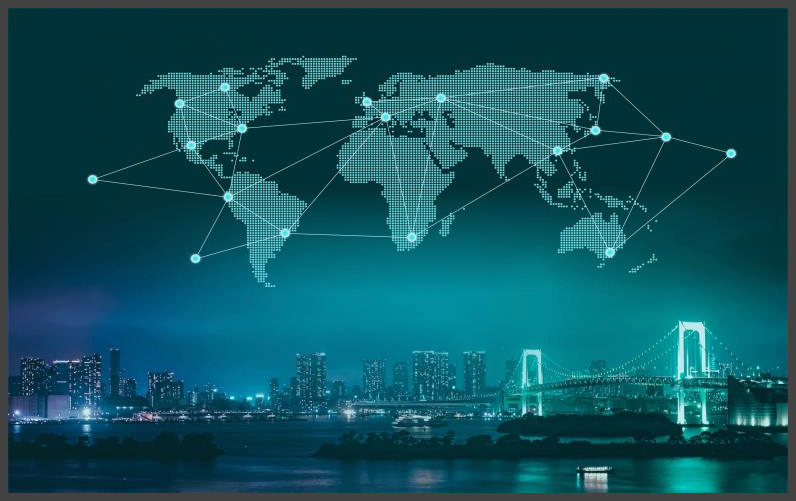
… It has created a global economy ↑
(as a concept, “global” is on a higher level
than international trade.
And there is a transnational level
that challenges/supplants multi-national operations)
and set new rules
for countries
that would participate in that economy
as equals.” ↓

Clues to the road ahead
“The twenty-first century
will surely be one of continuing
social, economic, and political turmoil and challenge,
at least in its early decades. (#impact)
The Age of Social Transformations is not over yet.
And the challenges looming ahead
may be more serious and more daunting still
than those posed by the social transformations that have already happened,
the social transformations of the twentieth century.
Yet we will not even have a chance to resolve these new and looming problems of tomorrow
unless we first address the challenges posed by the developments that are already accomplished facts,
the developments reported in the earlier sections of this essay. ↓
One thing is certain for developed countries—and probably for the entire world:
We face long years of profound changes. #lter
The changes are not primarily economic changes.
They are not even primarily technological changes.
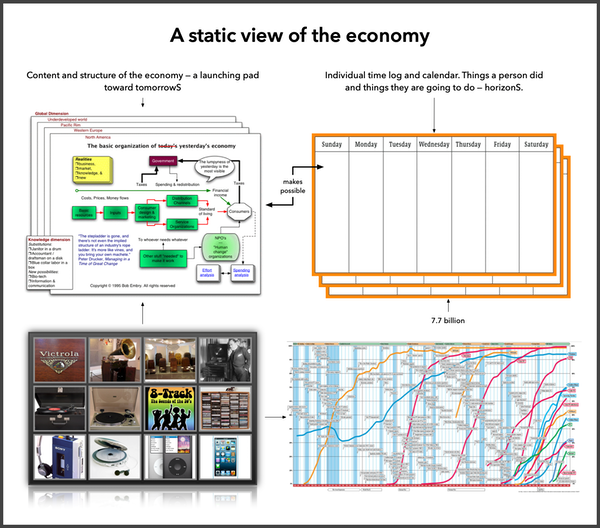
larger composite view ↑ ::: Economic & content and structure ::: Adoption rates: one & two
They are changes in demographics, in politics, in society, in philosophy and, above all, in #worldview.
... snip, snip ...
Thus it can be confidently predicted that a large number of today’s leaders in all areas, whether business, education or health care, are unlikely still to be around thirty years hence, and certainly not in their present form.
... snip, snip ...
But to try to anticipate the changes is equally unlikely to be successful.
These changes are not predictable.
The only policy likely to succeed is to try to make the future. continue

The need to manage oneself
Even if knowledge workers postpone entry into the labor force as long as possible — if, for instance, they stay in school till their late twenties to get a doctorate — they are likely, with present life expectancies in the developed countries, to live into their eighties.
And they are likely to have to keep working, if only part-time, until they are around seventy-five or older.
The average working life, in other words, is likely to be fifty years, especially for knowledge workers.
But the average life expectancy of a successful business is only thirty years — and in a period of great turbulence such as the one we are living in, it is unlikely to be even that long.
Even organizations that normally are long-lived if not expected to live forever — schools and universities, hospitals, government agencies — will see rapid changes in the period of turbulence we have already entered.
Even if they #survive — and a great many surely will not, at least not in their present form — they will change their structure, the work they are doing, the knowledges they require and the kind of people they employ. consider
The economic challenge of the post-capitalist society will therefore be the productivity of knowledge work and the knowledge worker.
People can only get paid in accordance with their productivity
Knowledge: Its Economics and Its Productivity
Management Challenges for the 21st Century
The new-productivity challenge
... snip, snip ...
Forty years ago, people doing knowledge work and service work formed still less than one third of the work force.
Today, such people account for three quarters if not four fifths of the work force in all developed countries—and their share is still going up.
Their productivity, rather than the productivity of the people who make and move things, is THE productivity of a developed economy.
It is abysmally low.
The productivity of people doing knowledge work and service work may actually be going down rather than going up.
... snip, snip ...
To improve the productivity of knowledge workers will in fact require drastic changes in the structure of the organizations of post-capitalist society, and in the structure of society itself.
... snip, snip ...
Unless we can learn how to increase the productivity of knowledge workers and service workers, and increase it fast, the developed countries will face economic stagnation and severe social tension.
... snip, snip ...
… This means a radical change in structure for the organizations of tomorrow.
It means that the big business, the government agency, the large hospital, the large university will not necessarily be the one that employs a great many people.
Outsourcing (not offshoring)
“To get productivity, you have to outsource activities
that have their own senior management.
Believe me, the trend toward outsourcing
has very little to do with economizing
and a great deal to do with quality.” continue
It will be the one that has substantial revenues and substantial results—achieved in large part because it itself does only work that is focused on its mission; work that is directly related to its results; work that it recognizes, values, and rewards appropriately.
The rest it contracts out.
We are now in a fourth surge, triggered by information and biology.
Like the earlier entrepreneurial surges, the present one is not confined to “high tech”; it embraces equally “middle tech,” “low tech,” and “no tech.”
Like the earlier ones, it is not confined to new or small enterprises, but is carried by existing and big ones as well—and often with the greatest impact and effectiveness. continue
And, like the earlier surges, it is not confined to “inventions,” that is, to technology.
Social innovations are equally “entrepreneurial” and equally important. continue
Find “How Perception Works” in the overview of
I Am Right — You Are Wrong
(From this to the New Renaissance: from Rock Logic to Water Logic)
#13b The individual in entrepreneurial society
Notes on entrepreneurial activities and destabilizer
… “They can no longer assume that
what they have learned as children and youngsters
will be the “foundation” for the rest of their lives.
It will be the “launching pad” —
the place to take off from
rather than the place to build on and to rest on.

larger composite view ↑ ::: Economic & content and structure ::: Adoption rates: one & two
A discipline is a necessary container
Knowledge and Technology
Knowledge economy, knowledge polity
Conditions for survival
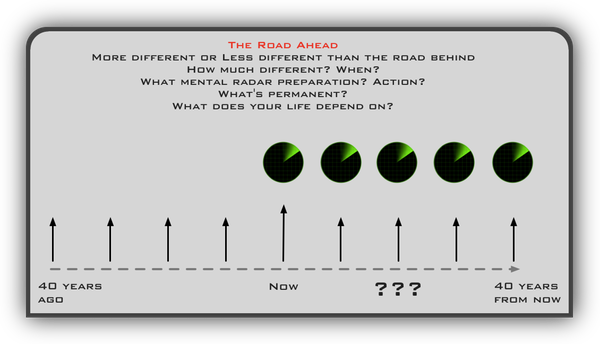
Knowledge based management
Career danger
… They can no longer assume that
they “enter upon a career” which then proceeds
along a pre-determined, well-mapped and well-lighted “career path”
to a known destination—what the American military calls “progressing in grade.””
The assumption from now on has to be
that individuals on their own
will have to find, determine, and develop
a number of “careers” during their working lives. (calendarize this?) See Josh Abrams story
|
![]()
